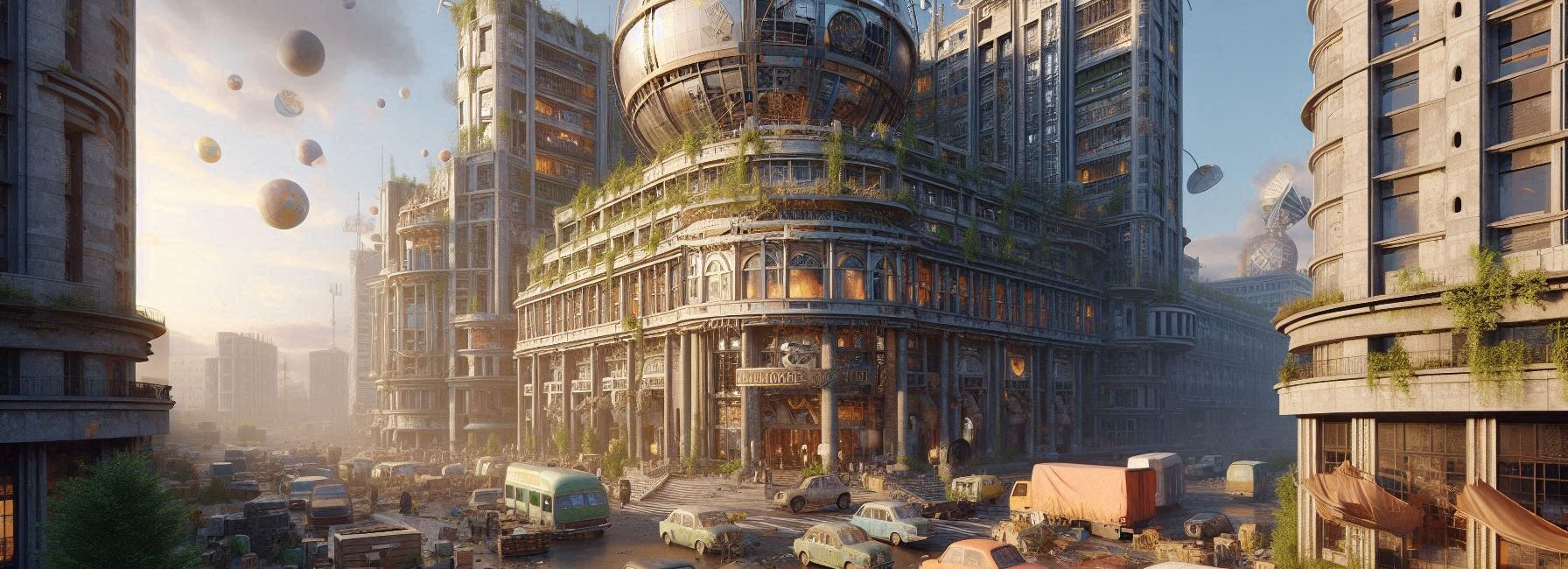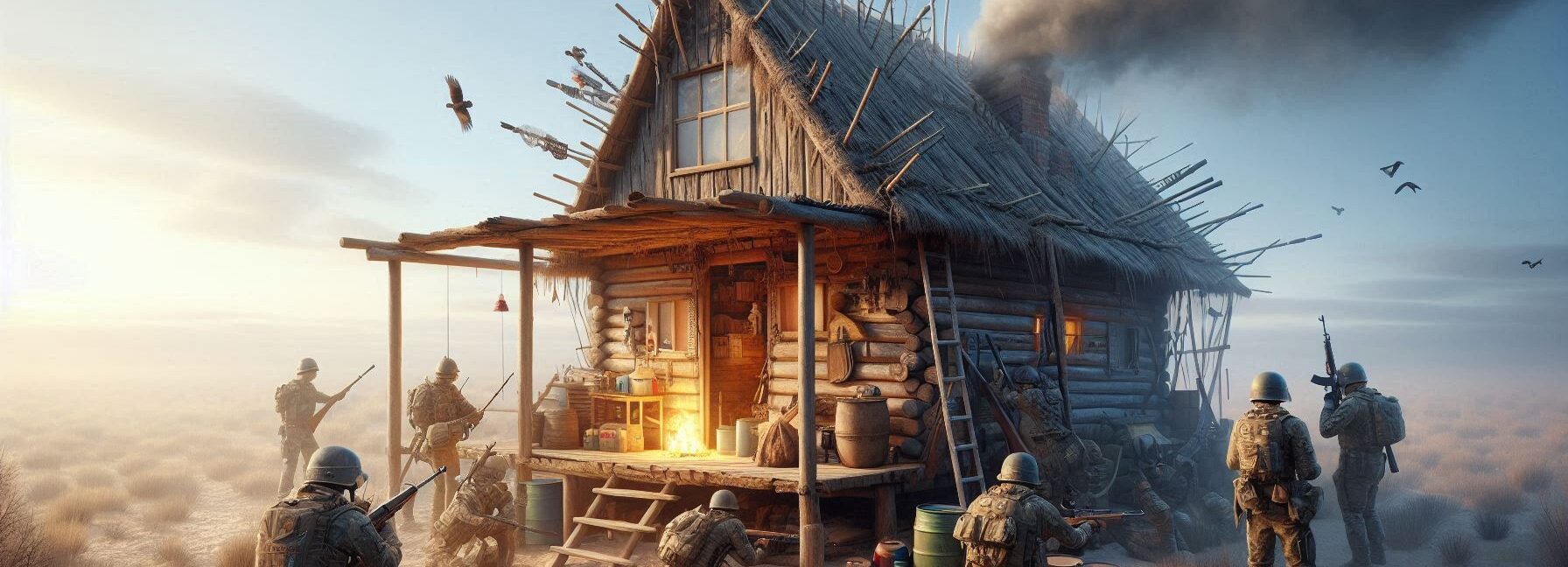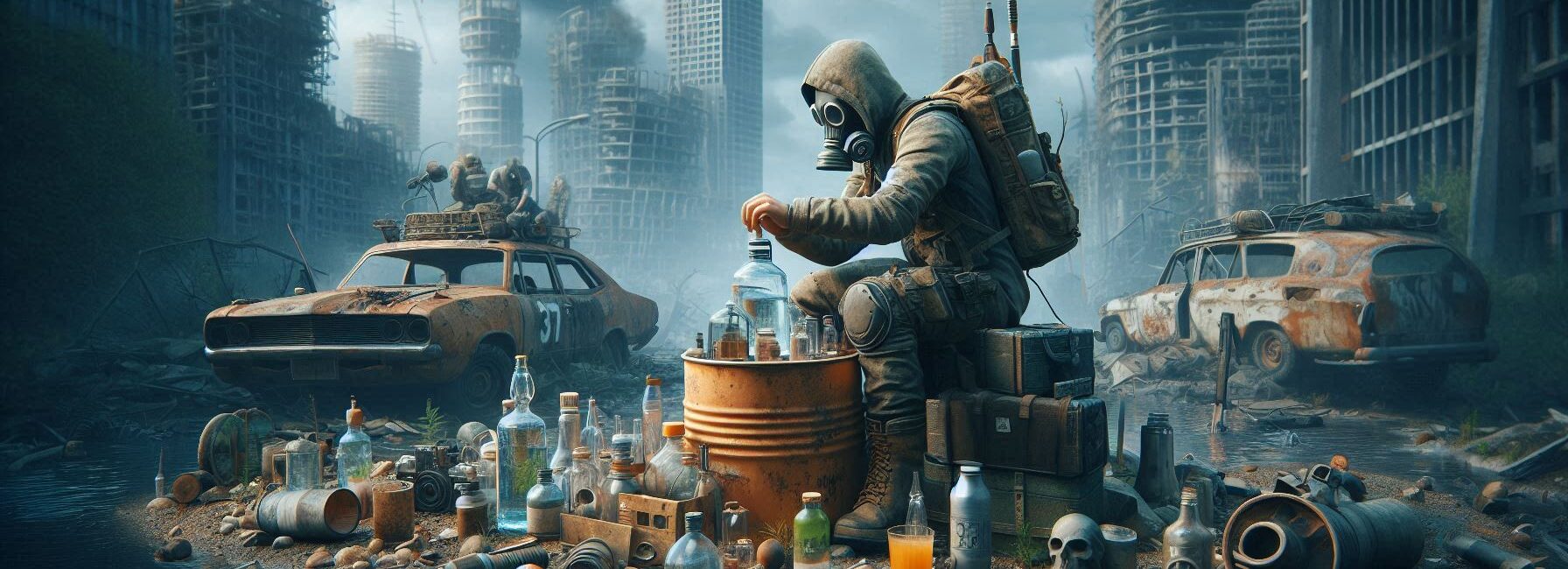Last Updated on November 1, 2025 by Kevin Collier
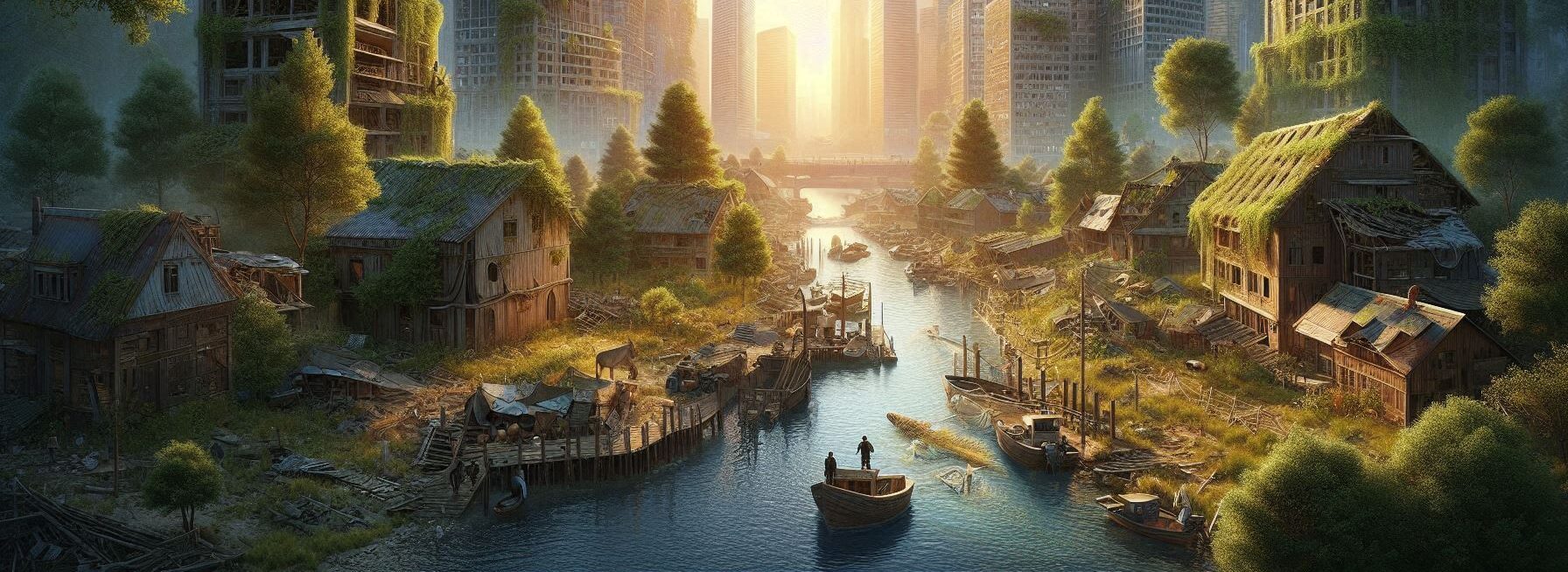
Top Takeaways and Key Concepts
Form a diverse, cooperative group which can pool skills and resources.
Secure stable access to food, clean water, and renewable energy systems.
Preserve and share essential knowledge (medicine, agriculture, engineering) across generations.
Establish fair governance, trade networks, and community rules for resilience and trust.
Prioritize rebuilding infrastructure and tools gradually to support long-term societal growth.
Imagine waking up one day and everything seems different. The world ended overnight. I mean, things went apart faster than I broke my New Year's resolutions. What do we do now?
It sounds like something out of a science fiction movie to construct a new society. But it's something we might have to think about. We need to be imaginative if we want people to live and do well.
Please Note: This post may contain affiliate links. If you click one of them, we may receive a commission at no extra cost to you. As an Amazon Associate, I earn from qualifying purchases.
Get your favorite can of beans. Yes, the one with the silly label. That's the first thing we need to do. Food is important. It will be very crucial to find ways to grow food or start gardens. Think about putting seeds in the earth and seeing them grow. It feels fantastic. Yum! Fresh vegetables!
We can't just sit around and wait for Netflix to come back, can we? We need to discover methods to stay connected and have fun. Everyone can get together through games, tales, and music. You know, something to make you feel better when things become hard.
Let's discuss about the community. It's easier to do things when we work together. We may divide up the chores and share what we have. One person can cook while the other gets water. Working together makes us stronger!
Another important thing is safety. Making a safe space for everyone will help us all sleep better. It might be amusing and helpful to build walls or lookouts. It makes us feel safe.
Picture a nice campfire at night. Of course, it would be a time to tell stories, laugh, and eat beans. It takes more than one person to rebuild this world. It's a job for everyone.
So, let's dream big! We can all work together to make a new place where everyone is secure and happy. We're in this together, and it's going to be a wild trip. We can do this!
Contents of This Page
*** Shop for Survival Gear - Tools - Kits ***
Survival Gear - Bags and Backpacks - Knives - Boots/Footwear - Communication
Outdoor Cooking - Gloves - Hydration - Dry Boxes - Water Filtration Systems
Tents - Sleeping Bags - First Aid Kits - Multi-Tools - Flashlights - Fire Starters
Navigation - Survival Food - Night Vision - Headlamps - Stun Guns - Binoculars
Gather Your People: Community is Key
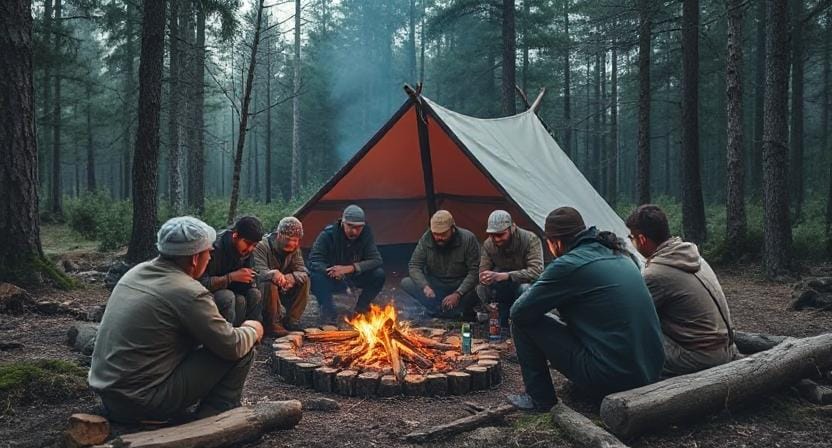
First of all, you can't build something back up by yourself. I mean, you could try living alone like a hermit crab (and trust me, nobody wants that), but people are social animals! Oh, and have you ever tried talking to a squirrel? Not very interesting.
Get together with anyone who is still around, like friends, family, or even that neighbor who usually borrows your lawnmower and never gives it back (yeah, I'm talking about Bob). Building a community not only helps people feel better, but it also gives them a wide range of skills.
One member would know how to sow food, while another might know how to fix damaged radios. This would make your squad like The Avengers in an apocalypse!
And to be honest? Make sure everyone in your community knows what their duty is. You may name one person the “chief potato planter” and another the “head negotiator” when you trade items with other tribes. This structure will assist everyone know what they need to do and keep things from getting out of hand faster than you can say “zombie apocalypse.”
Look at Our Resources: What Do We Have?

Next is resource evaluation, since let's be honest: you can't establish a lasting society on just hopes and dreams (unless those dreams involve finding an unlimited supply of chocolate). Check your food, water, and tools to make sure no one is keeping all the delicious goodies for themselves.
It's interesting that nature often gives us more than we know! You can start looking for wild foods every day. Remember that not all food seems safe to consume! Trust me, I once thought a mushroom was dinner and spent the night thinking about my life choices instead.
You should also think about using other sources of energy. If petrol stations are shuttered for good (thanks again, apocalypse), look into solar panels or wind turbines as long-term ways to power whatever technology still works. Who would have thought that scavenging might be good for the environment?
Plant Those Seeds To Make Agriculture Last!

Once you've gotten your team together and looked at what you have, it's time to go to work—literally! It will be very important for long-term survival to start a system of sustainable agriculture. Fresh vegetables are always superior than canned mystery meat, so think about it.
Start by choosing the right crops for the weather in your area. Potatoes are fantastic since you can use them in a lot of different ways and they're not too hard to cultivate. I didn't even kill them when I tried to garden last time! To keep the soil healthy, you should rotate your crops every year. This is not only helpful for the land, but it also makes Mother Nature happy.
If you can, don't forget about your animals, though! Chickens are great pets since they lay eggs and are fun to watch as they run around (but don't let them near Bob's garden). Also, who wouldn't want fresh eggs in the morning when the world ended?
Set up Infrastructure: Safety And Shelter
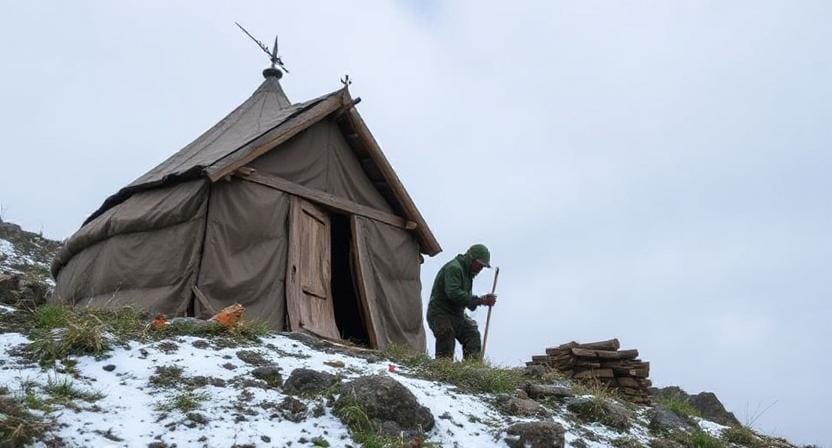
Building infrastructure is the exciting part now! You need locations to be safe and sheltered because nothing screams “I'm doing well” like building temporary dwellings out of scrap materials and singing campfire songs.
Let's see… You can start with simple shelters made from things like old tarps and wooden pallets that have been left behind like relics of a lost civilization. Make places where people may securely get together, like a town hall made out of shipping containers. That seems elegant enough!
Setting up security measures against possible dangers is also vital. These threats may be renegade groups or raccoons that are too aggressive and want revenge after you stole their garbage cans last summer (believe me, they retain grudges). At night, set up watchtowers or patrols so that everyone feels safer knowing that someone is looking out for them—or at least their munchies.
Promote Education And Sharing Of Skills
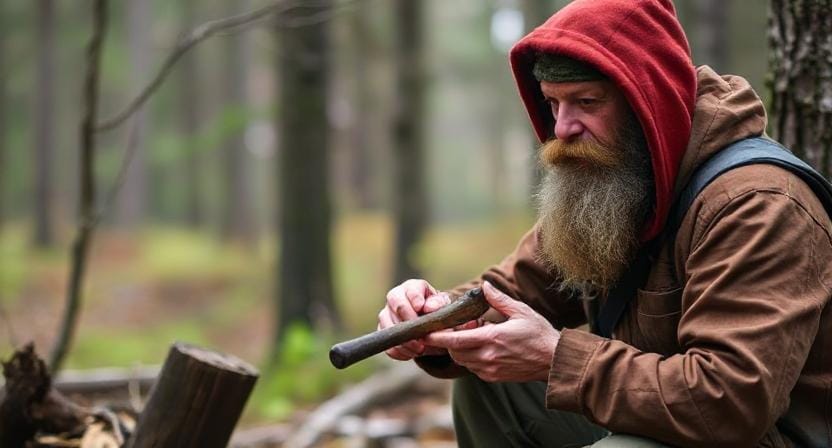
Last but not least, you must make education a top priority in this new society. Let's be honest: information is power, whether you're teaching kids how to read or adults how to create soap out of lye (which sounds hard but isn't at all once you get the hang of it).
Set up workshops where people can share skills like how to farm and how to create garments out of old fabric scraps found in abandoned buildings nearby (since nothing says “post-apocalyptic chic” like patchwork!).
Encourage people to be creative. You might even have talent events where everyone shows off their secret talents, like juggling fire sticks or doing interpretive dance routines with scarecrows.
By encouraging learning now instead of later, when everyone finds they forgot how electricity works, we could spare future generations headaches and maybe even lives!
Frequently Asked Questions
Why is forming a diverse community important after an apocalypse?
Diversity creates resilience because different people bring different skills, knowledge, and problem-solving strengths to rebuild key systems.
What survival priorities come first?
Stable access to food, clean water, and renewable energy must be established early to stabilize daily life and reduce mortality risk.
Why is knowledge preservation critical?
Storing and teaching essential subjects like agriculture, medicine, and engineering prevents generational skill loss and accelerates societal recovery.
What governance elements matter most in early reconstruction?
Clear rules, fair leadership, and transparent trade help prevent conflict, encourage trust, and build a functioning community economy.
How should infrastructure be rebuilt after collapse?
Prioritize shelters, sanitation, water systems, tools, and small-scale power sources so long-term development can grow step by step.
Why is shared work better than isolated effort?
Cooperative labor increases success rates, reduces burnout, and allows tasks to be assigned based on strengths instead of desperation.
What role does culture and morale play?
Music, stories, games, and shared celebrations lower stress, strengthen identity, and help prevent psychological collapse during harsh conditions.
Suggested External Resources:
How To Survive the End of The World
https://www.survivetheend.com
Building Community After Disaster
https://www.communityresilience.org
The Ultimate Guide to Homesteading
https://www.homestead.org

Kevin Collier is a seasoned survivalist and expert in prepping and homesteading, contributing to WiseSurvive.com. With a deep-rooted passion for self-sufficiency and outdoor survival skills, Kevin shares practical advice, strategies, and resources to help individuals prepare for any challenge. His informative articles cover a range of topics, from essential survival techniques to sustainable living practices, empowering readers to thrive in any situation. Whether you're a novice or a seasoned prepper, Kevin's insights will inspire you to take charge of your readiness and build resilience for the future.


